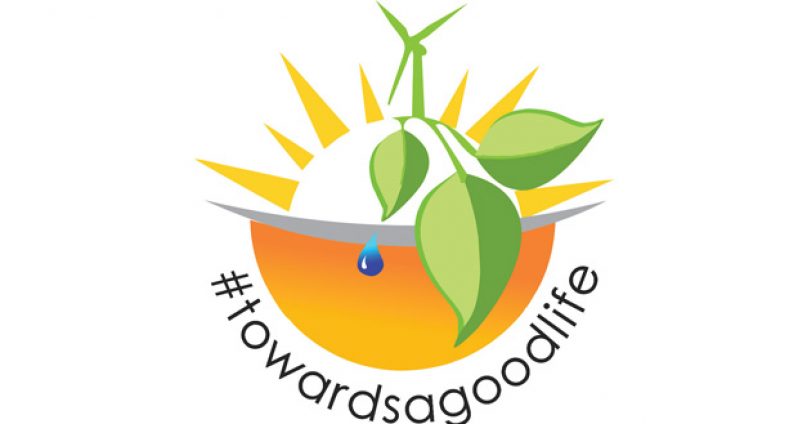— Democratic governance key to good life
By Hugh Todd
THE Government of Guyana has gone on record by explicitly communicating to the citizenry its vision of a good life in a green economy. Our objective in this missive is to tease out our understanding of this vision through our lens and provide an optimistic, most-likely, or pessimistic position of the incumbent’s master plan. Because we recognise the plurality of Guyana’s political economy – we believe that the equilibrium of a shared vision between the rulers and the ruled can best be achieved through the platform of democratic governance. We therefore propose to concentrate on the democratic governance – good life nexus, having already accepted the green economy as a relevant policy initiative.
The choice of democratic governance as the anchor in this piece provides measurable indicators that allow citizens to adequately and objectively assess the Government’s quality of rule on a trajectory – whether upwards (positive) or downwards (negative). Further, each citizen’s ability to effectively assess the quality of democratic rule should, on aggregate, amount to a common position or understanding nationwide. Fundamentally, democratic governance should diminish or remove altogether any subjectivity in the interpretation of a good life. We further submit that democratic governance is the impetus for a good life, since the former is broad in scope and cater to the entire citizenry.
Political democracy can be traced back to ancient Greece, where the purest form (classical) of democracy began. Over the centuries, several forms of democratic rule were practised, relative to a given political ideology, notably: protective democracy, developmental democracy, people’s democracy and liberal democracy. The work of French philosopher Jean-Jacques Rousseau (1712-78) reflects a deep belief in the goodness of the ‘natural man’ and the corruption of the ‘social man’. An advocate of a radical form of democracy, Rousseau’s political teaching was published in his book entitled: “The Social Contract” ([1762] 1913). Other important works in democratic governance include UK philosopher Jeremy Bentham (1748-1832) and his ‘greatest happiness’ principle and Robert Dhal’s (1914-2014) writings on the “Procedural Minimal.”
As citizens of Guyana, we have recognised the transition to democratic governance over the years through the adoption of the neoliberal construct, and have witnessed regular elections to date. The promise of a good life, as we recall, is not a new message. In Guyana’s electoral democratic history, the promise of a good life for all has been consistently communicated to the population, both implicitly and explicitly. We deduce therefore, that the recent stance of a good life by the incumbent suggests that the electorate has not benefited in any meaningful or progressive manner from the good life as promised over the years. It is important that the citizens of Guyana understand that they have a vital role to play in the political process and that they share a citizens – servant relationship with their own elected representatives. But even more importantly, the electorate knows that they have the power to hire and fire those representatives whom they elect to serve. In this regard, the prevailing socio-economic conditions, established state structures as well as policy practices must be explained to all citizens. With this knowledge, the electorate can place confidence in the elected representatives to provide the framework within which systems, procedures and rules must be institutionalised.
Guyanese latest pursuit of happiness was evident with the electorate’s approval of a strategic political alliance in the most recently contested general elections. In the current dispensation, we begin by looking at the manner in which the ruling Cabinet is organised. Apart from the traditional ministerial responsibilities, we submit that ministerial oversight on governance, social cohesion, along with concentrated ministerial attention given to communities and indigenous peoples speak to some form of decentralisation. These structural forms of decentralisation augurs well for enhanced citizen participation, social inclusion and national integration. Consequently, the Government’s targeted focus on culture and education, labour, public infrastructure, public security, business as well as the effective and efficient management of the natural resource sector should improve the socio-economic standing of the country. The forgoing is achievable through cooperation, citizen participation and effective representation. Additionally, the incumbent’s constitutional reform process, institutional reform initiatives and more importantly, the upcoming Local Government Elections, should improve the prevailing political system and policy practices.
The movement of the Government along this trajectory has stimulated a positive growth in the country’s democratic culture. For these reasons an objective assessment of the incumbent’s performance thus far can be regarded as very good. The evidence suggests that a good life, which is common to every citizen, is most likely to be realised. Continued interest of the people in holding the elected representatives accountable for their actions is necessary for good governance. We accept that the good life beckons – citizens must now remain vigilant, assertive and continue to play an integral role in the political process.
The next article will examine some relationships between energy and a green economy.
Short Bio:
Hugh Todd is a lecturer and Head of the Business and Management Studies Department at the University of Guyana. Hugh has published and presented at academic conferences in Guyana, within the Region and beyond. His strengths include new regionalism, small state issues, Latin American and Caribbean politics, strategic planning and policy formulation, international business and competitiveness, marketing strategy
Comments can be sent to: towardsagoodlife@gmail.com




.png)









